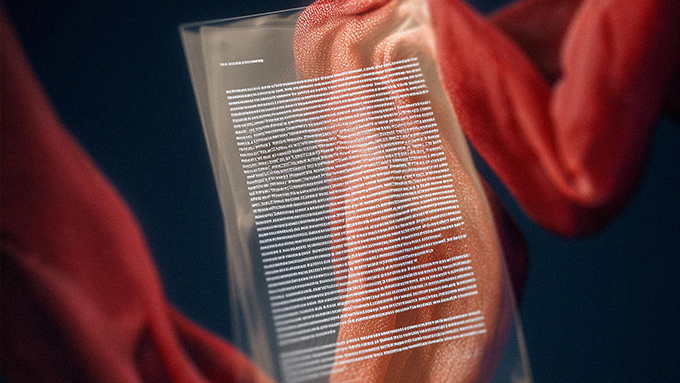Assignment of the Author’s Economic Rights
The author is the person creating the work and automatically becomes the owner of the economic rights on the work by the creation thereof. If the author does not have the resources to solely exercise the economic rights on the work, s/he may apply two different methods to benefit from the economic rights as regulated under Intellectual and Artistic Works Act numbered 5846 (“IAWC”). These methods assign the economic rights and assign the authority to exercise the economic rights; in other words, granting licenses for economic rights.
Assignment and License
The author has six economic rights, which are the right of adaptation, right of reproduction, right of distribution, right of performance, right to communicate a work to the public by devices enabling the transmission of signs, sounds and/or images, and right to payment of the sale of share proceeds, and pursue the same as designated under Articles 21 – 25 and 45 of the IAWC. If the author assigns an economic right, the assigned economic right leaves the assets of the author and becomes a value within the assets of the right holder who assigned the economic right. The assignee right holder becomes the owner of all rights attached to the assigned economic right, including the right to initiate an action. On the other hand, if the author grants a license on the economic right, such economic right remains under the assets of the licensor author. The licensee right holder only has the right to use and benefit from the licensed economic right.[1]
Assignment Agreement
Economic rights are assigned through a written assignment agreement. The rights to be assigned should be explicitly designated under the assignment agreement. Requirements of written form and explicit designation of the assigned economic rights are validity conditions; therefore, clauses, such as “all economic rights are assigned,” or “the right to reproduction etc. are assigned,” will not be deemed valid as per Article 52 of the IAWC.[2]
Economic rights may be assigned on a limited or unlimited basis with respect to location and duration. Economic rights may also be assigned with or without the requirement to pay any consideration for the assignment. Additionally, economic rights may be assigned to different persons by limiting the scope of the right. For instance, a photographer may assign the right of reproduction and right of distribution of his/her photographs only to be displayed within a certain catalogue. In this case, the assignee right holder may not use these photographs in any other environment, such as written press or the internet, except such catalogue as referred to herein.
The assignee right holder may not assign the economic rights to third parties without obtaining the written consent of the author or his/her heirs, unless the right to assign to third parties is set forth under the assignment agreement (IAWC Article 49/1). The reason why the consent of the author is required is to establish the connection with the author. The work is not severed, and the control of the author over the use of the work is established.[3]
License Agreement
The author may grant a license to exercise economic rights on the work without assigning economic rights (IAWC Article 48/2). Upon granting a license to exercise an economic right, such licensed economic right remains within the assets of the author (or the right holder), and the licensee will only be entitled to exercise such economic right.
The law regulates two different types of licenses, those being exclusive or non-exclusive license. A license is non-exclusive if it does not prohibit the holder of the economic right to grant the same license to others and is exclusive if it is granted to only one person. In the case of an exclusive license, unless otherwise determined, even the author (or the economic right holder) may not exercise such right. Unless to the contrary can be deduced from the law or agreement, all licenses are deemed to be non-exclusive. The provisions on usufructuary leases will apply to non-exclusive licenses, and those on usufruct leases shall apply to exclusive licenses. (IAWC Article 56)
The license to exercise an economic right is granted through a written license agreement in which all rights to license are explicitly specified. In the same manner, and with respect to assignment agreements, written form is a validity condition. Any vague expressions regarding licensed economic rights will be deemed invalid. The license right may also be assigned on a limited or unlimited basis with respect to location, duration and scope. Additionally, the license may be granted with or without the requirement to pay any consideration. For instance, an exclusive license on the right to reproduce the musical work of a symphony may be granted to a publishing house, a non-exclusive license on the right to perform the symphony may be granted to a concert organizer, and non-exclusive licenses on the right to communicate the work to the public may be granted to two different TV channels.[4]
Granting an exclusive license on an economic right does not create an obstacle for the assignment of such economic right, because the licensed economic right remains within the assets of the right holder; however, the rights of the exclusive licensee will be protected against the new right holder.[5]
The provision prohibiting the assignment of the assigned economic right by the right holder to third parties without obtaining the written consent of the author (or his/her heirs) also applies to license agreements. Accordingly, the exclusive or non-exclusive licensee may not grant a license to third parties without obtaining the written consent of the author (or his/her heirs), unless the right to grant a license to third parties is set forth under the license agreement (IAWC Article 49/1).
Acts of Disposal on Incomplete Works
Only the completed works may be the subject of an assignment or license agreement (i.e. acts of disposal), and assignment or license agreements with regard to incomplete works are invalid. However, commitments regarding the acts of disposal are valid even if they are made prior to the creation of the work[6] (IAWC Article 48/3, 50/1).
In the case of a commitment regarding the acts of disposal, assigning or granting a license on the economic rights of the work following the completion of the work constitutes the subject matter of the commitment. Thus, the right holder may request the assignment or license of the economic right on the work once the work is created. For instance, an artist may undertake to grant a gallery with a license, or assigning the right of performance, on the painting s/he is then painting by executing a contract with the gallery. Once the work is completed, the gallery is entitled to request the transfer of the economic right, for which the artist and gallery must conclude a second agreement, whereby the terms and provisions of the assignment and/or license are indicated.
As assignment and license agreements, commitments regarding the acts of disposal on incomplete works are also concluded in writing, and the economic rights that are subject to a commitment should be explicitly indicated thereby. A written form requirement is a validity condition.[7]
Although concluding an assignment and license agreement on the economic rights of an incomplete work is deemed invalid by law, such assignment and license agreements are frequently encountered in practice in Turkey, due to the impact of Anglo-Saxon law. In the events where the economic rights on the incomplete work are assigned or licensed, the Supreme Court, by considering the facts of the concrete cases, has either resolved that such assignment or license agreement is deemed to be considered as a commitment to assign or grant license on the incomplete work within the scope of Article 50/1 of the IAWC, or is deemed to be invalid due to Article 48/3 of the IAWC. Therefore, if the economic rights of the incomplete works are to be assigned or licensed, such agreement should be drafted as an undertaking to assign or license, rather than an assignment or license agreement. Furthermore, as the economic rights will not be automatically transferred to the right holder during the commitment period, a second agreement on the assignment or license should be executed after the work is created.
Right of Rescission
If the acquirer of an economic right or a license exercises his/her rights and authorities, insufficiently, within the agreed period, or where no period is determined within a reasonable time, and if thereby the author’s interests are significantly violated, the author may rescind the agreement (IAWC Article 58). The right to rescind is a formative right, and the economic right returns to the author by exercising the right to rescind.[8]
In order for an author to exercise the right to rescind, the statutory requirements as to form must be fulfilled. Accordingly, the author wishing to exercise the right to rescind must grant the other party, upon notifying him/her through a notary public, a period of time adequate to exercise its contractual rights. The notice issued by the notary public gives effect to the rescission of the agreement, if the expiration date for the granted period is exceeded, or if it is not necessary to grant such period. The granting of such a period is not necessary, if it is impossible for the other party to exercise such right, or if he/she refuses to exercise it, or if the granting of such period would significantly jeopardize the author’s interests.
The other party does not have to be at fault in order for the author to exercise the right to rescind. However, if the other party is at fault, then the author may request compensation in accordance with the provisions of Turkish Code of Obligations numbered 6098. On the other hand, if fault is attributable to the author, he/she may not exercise the right to rescind.
The right of rescission may not be waived in advance, and limitations precluding its exercise for more than two years are null and void (IAWC Article 58/5). Action of objection may be pursued in the four weeks following the service of the rescission notification. If no action of objection is initiated within the four weeks, it should be concluded that the rescission was just.[9]
Conclusion
When the author does not have the financial resources to benefit from the economic rights on his/her work, he/she may assign or grant a license on the economic rights to third parties. Economic rights may be assigned or licensed on a limited or unlimited basis in terms of location, duration and scope. Also, there is no legal requirement to pay any consideration for the assignment or license. Assignment or license agreements regarding incomplete works are deemed invalid. However, an undertaking may be given for the assignment or licensing of the economic rights to have arisen from the creation of the work. If the author assigns or grants a license on the economic rights, and the assignee or licensee fails to exercise these economic rights as designated under the agreement during the term of the agreement and, thus, the interests of the author are materially violated, the author may use the statutory right of rescission to terminate the assignment or license agreement.
[1] Bozbel, Savaş: Fikri Mülkiyet Hukuku. On İki Levha Yayıncılık, 2015, p. 198-199.
[2] Tekinalp, Ünal: Fikir ve Sanat Eserleri Hukuku, Vedat Kitapçılık, 2012, p. 232.
[3] Karahan, Sami; Suluk, Cahit; Saraç, Tahir; Nal, Temel: Fikri Mülkiyet Hukukunun Esasları, Seçkin Yayıncılık, 2012, p. 117.
[4] Tekinalp: p. 232.
[5] Karahan; Suluk; Saraç; Nal: p. 117.
[6] Commitments regarding the acts of disposal may also be given if the work is completed.
[7] Tekinalp: p. 232.
[8] Bozbel: p. 220.
[9] Bozbel: p. 220.
All rights of this article are reserved. This article may not be used, reproduced, copied, published, distributed, or otherwise disseminated without quotation or Erdem & Erdem Law Firm's written consent. Any content created without citing the resource or Erdem & Erdem Law Firm’s written consent is regularly tracked, and legal action will be taken in case of violation.








